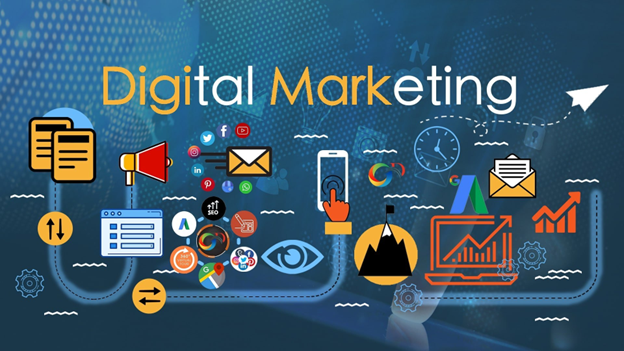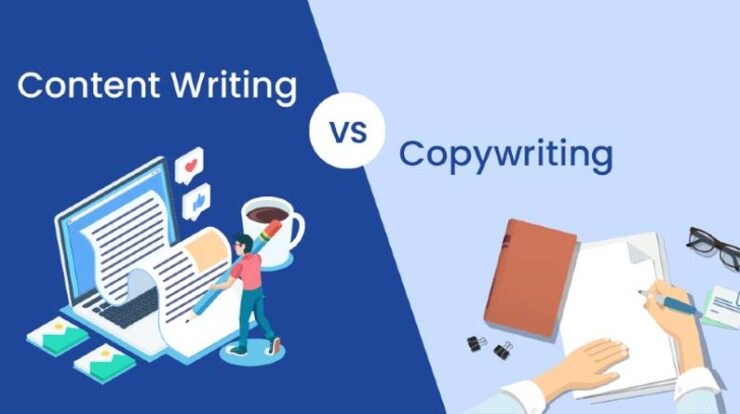
In today’s fast-paced and interconnected world, digital marketing has become an indispensable tool for businesses of all sizes. With the increasing reliance on technology and the internet, reaching and engaging with potential customers has shifted to the digital realm. Whether you’re a small start-up or a well-established enterprise, understanding the essentials of digital marketing is crucial for achieving success in the competitive business landscape.
This blog post aims to provide beginners with a comprehensive introduction to digital marketing. We will explore the fundamental concepts and strategies that form the foundation of any successful digital marketing campaign. From search engine optimization (SEO) to social media marketing, content creation to email marketing, we will delve into the key components that can help you boost your online presence, attract target audiences, and drive meaningful results.
By the end of this blog post, you will have a solid grasp of the core digital marketing principles and tactics that will empower you to navigate the ever-evolving digital landscape with confidence. Whether you’re starting your own business or seeking to enhance your marketing skills, this guide will equip you with the essential knowledge needed to thrive in the digital marketing realm. So, let’s dive in and unlock the secrets of effective digital marketing together.
Understanding Digital Marketing Fundamentals
Digital marketing has become an essential aspect of modern business strategies. It encompasses various techniques and channels to promote products and services in the digital realm. Understanding the fundamentals of digital marketing is crucial for success in today’s highly competitive landscape. Firstly, it involves utilizing online platforms such as websites, social media, and search engines to reach target audiences effectively. Secondly, it relies on data analysis and metrics to measure campaign performance and make informed decisions. Additionally, digital marketing emphasizes the creation of engaging and relevant content to capture the attention of potential customers.
Creating an Effective Digital Marketing Strategy
According to the experts at assignment help London, Creating an effective digital marketing strategy is crucial for businesses looking to thrive in today’s digital landscape. It begins with a clear understanding of the target audience and their online behavior. By identifying their preferences and needs, businesses can tailor their messaging and select the most suitable digital channels. Next, defining clear goals and key performance indicators (KPIs) is essential. Whether it’s increasing website traffic, improving conversion rates, or boosting brand engagement, these goals guide the strategy’s direction.
Building a Strong Online Presence
Building a strong online presence is essential for businesses in today’s digital world. It involves creating a cohesive and engaging brand identity across various online platforms. This includes having a well-designed and user-friendly website, active social media profiles, and consistent branding elements. A strong online presence also involves managing online reputation, interacting with customers, and providing valuable content. By establishing credibility and visibility online, businesses can attract and retain customers, generate leads, and stay ahead of the competition.
Harnessing the Power of Content Marketing
Content marketing is a powerful tool for businesses to connect with their target audience and build brand loyalty. It involves creating and distributing valuable, relevant, and consistent content to attract and retain a clearly defined audience. Content can take various forms, including blog articles, videos, infographics, and podcasts. By providing informative and engaging content, businesses can establish themselves as industry experts, increase brand awareness, and drive customer engagement. Content marketing also helps improve search engine rankings and generates organic traffic, leading to increased conversions and business growth.
Social Media Marketing Strategies
Social media marketing has become an integral part of digital marketing strategies. It involves leveraging social media platforms to connect with the target audience, build brand awareness, and drive customer engagement. Effective social media marketing strategies adopted by dissertationassistance.co.uk, include identifying the target audience, selecting the most relevant platforms, and creating compelling content that resonates with the audience. It also involves engaging with followers, running targeted ad campaigns, and measuring performance through analytics. Social media marketing helps businesses establish a strong online presence, foster relationships with customers, and drive traffic to their websites, ultimately leading to business growth.
Search Engine Optimization (SEO)
Search Engine Optimization (SEO) is the practice of optimizing a website to improve its visibility and rankings in search engine results pages. It involves various strategies such as keyword research, on-page optimization, link building, and technical optimization. SEO helps businesses attract organic traffic, increase website visibility, and improve user experience. By aligning website content with search engine algorithms, businesses can enhance their online presence and reach their target audience effectively.
Pay-Per-Click (PPC) Advertising
Pay-Per-Click (PPC) advertising is a digital marketing model where advertisers pay a fee each time their ad is clicked. It allows businesses to display targeted ads on search engine results pages and other online platforms. PPC advertising offers instant visibility and control over ad campaigns, allowing businesses to reach their target audience quickly. By setting budget limits, targeting specific demographics, and monitoring campaign performance, businesses can generate quality leads, increase website traffic, and achieve measurable results.
Email Marketing and Automation
Email marketing is a powerful tool for businesses to connect with their audience, nurture leads, and drive conversions. It involves sending targeted emails to a segmented audience to deliver personalized messages and relevant content. Email marketing automation streamlines the process by automating tasks such as sending personalized emails based on user behavior, triggering automated campaigns, and tracking email engagement metrics. It helps businesses build relationships, promote products or services, and generate repeat sales by delivering timely and relevant content directly to the inbox of potential customers.
Analytics and Data-driven Decision Making
Analytics and data-driven decision making are essential components of a successful digital marketing strategy. By utilizing tools like Google Analytics, businesses can track website traffic, user behavior, conversion rates, and other valuable metrics. Analyzing data helps identify trends, strengths, weaknesses, and areas for improvement. Data-driven decision making allows businesses to optimize marketing efforts, allocate resources effectively, and make informed decisions based on factual insights. By continuously monitoring and analyzing data, businesses can adapt their strategies, optimize campaigns, and achieve better ROI.
Staying Updated and Embracing Continuous Learning
In the dynamic world of digital marketing, staying updated with industry trends, new technologies, and algorithm changes is crucial. Continuous learning helps professionals stay ahead of the curve and adapt their strategies to evolving market demands. Engaging in industry blogs, attending webinars, participating in workshops, and networking with peers are ways to stay informed. Embracing continuous learning allows digital marketers to acquire new skills, explore emerging platforms, and experiment with innovative techniques. By staying updated, professionals can deliver effective strategies, improve campaign performance, and drive business growth in a rapidly evolving digital landscape.
In Conclusion
Now is the time to take action and start implementing digital marketing techniques for your business growth. Don’t be intimidated by the vastness of the digital landscape. Begin by understanding your target audience and their online behavior, then gradually integrate different strategies such as content marketing, social media marketing, SEO, PPC advertising, email marketing, and analytics. Be willing to experiment, learn from your successes and failures, and adapt your approach based on the data you gather like crowd writer reviews. Remember that digital marketing is an ongoing process, so stay committed, stay updated with the latest trends, and continuously refine your strategies to achieve long-term business growth in the ever-evolving digital world.






